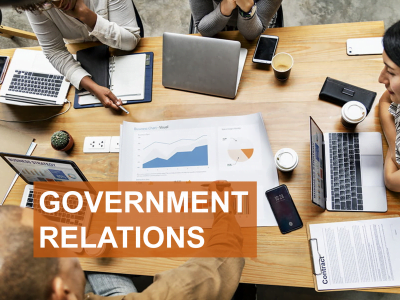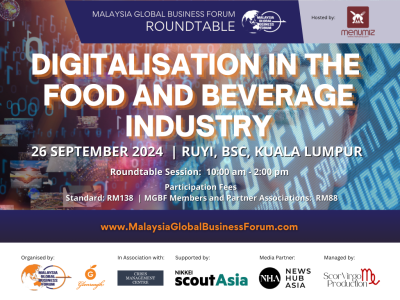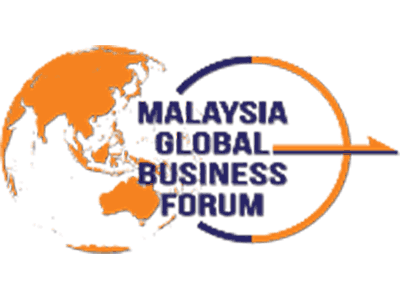SINGAPORE –
Media OutReach – 1 February 2023 – GBG (AIM:GBG), the global technology specialist in fraud and compliance management, identity verification and location data intelligence, today released its Asia Financial Institution Study, “Combatting Escalating Fraud in a Digital World”. According to the TABInsights study commissioned by
GBG, Asia’s top financial institutions (FIs) continue to be challenged by the expanding threat landscape in the past few years as well as the tightening of regulatory and enforcement measures. The study found more rigorous supervision and penalties have resulted in increased monetary losses in the form of regulatory fines, the highest-ranking component of fraud loss for 41 per cent of FIs—a change from the previous survey in 2020 wherein direct fraud losses was ranked highest.
The survey found that Asian FIs complete a higher number of transactions through mobile and online channels with the highest digital channel adoption seen in Indonesia (71 per cent), closely followed by Malaysia (70 per cent). Respondents said they expect the average daily digital transaction volume to surge by 70 per cent in 2025 compared to 2022. As more FIs expand their digital offerings in response to consumer behaviour shifts towards mobile and digital, managing the cost of increasing compliance has emerged as a key concern for 70 per cent of FIs, while the ability to scale fraud detection measures to growing digital transaction volumes (39 per cent) and identity verification (33 per cent) rank as the top challenges.
Dev Dhiman, Managing Director, APAC, GBG said: “Open banking, interconnected devices and ecosystems, and increased digital adoption in general has elevated the risk of digital fraud and cyber-attacks, and expanded the perimeter of attack FIs face today. New technologies are being exploited every day by innovative perpetrators who continue to challenge FIs to escalate their technology risk management strategy and capabilities to comply with the increased scrutiny by regulators and customers alike.”
Stronger ML adoption in Asia but gaps in data standardisation remain a key challenge The study revealed strong machine learning (ML) adoption in Indonesia (71 per cent) and Thailand (69 per cent), while third-party data is used more actively in China (77 per cent), Vietnam (73 per cent) and the Philippines (68 per cent) alongside robotic analytics in Singapore (63 per cent) and Malaysia (62 per cent) to address false positives, indicating a maturing ML landscape among Asian FIs. While the region saw increased adoption of ML-based algorithm tools with automated smart models to address fraud prevention in the sector—with 47 per cent of FIs actively using ML tools and 37 per cent beginning to use them—one of the biggest challenges for these organisations undergoing digitalisation is the increased complexities in addressing data standardisation and governance to scale fraud detection.
Some 38 per cent of FIs indicated that inadequate data standardisation is their most critical gap, alongside 32 per cent who are challenged by fragmented data because of piecemeal systems and software. In Thailand and China, fragmented data emerged as the top challenge for FIs. In Malaysia, after inadequate data standardisation, lack of good link analysis was also highlighted by 23 per cent as the top challenge. Meanwhile, 59 per cent of FIs said they increasingly rely on third-party data, alongside 58 per cent that use ML to address false positives.
The evolving risk dynamics in the industry are forcing institutions towards stronger data integration and technology tools to future-proof their fraud risk capabilities and ability to gather effective data insights. Increasingly, institutions seek to integrate a spectrum of transactions, devices and big data to strengthen fraud detection capabilities. Data from interconnected devices are being used by 78 per cent of FIs, while 76 per cent use transaction data and 64 per cent public data. In fact, 42 per cent of FIs indicated their need to prioritise and invest in one platform to interexchange application data and transaction data in 2022. Within the next year, 47 per cent of FIs plan to add internal unstructured data and geographic data to deepen their fraud detection.
Addressing risk management holistically requires cultural change Despite many safeguards, fraudsters have remained one step ahead in employing modern technology to commit fraud and exploit loopholes. Respondents in the study recognise the need for a comprehensive enterprise-wide strategy for fraud control that includes data, technology, people, and procedures. A significant 48 per cent of FIs continually upskill and upgrade their human resource capabilities while 19 per cent actively hire new staff to meet the evolving requirements.
Additionally, increasing the application of scalable and intelligent technologies, such as AI and ML, enable advanced predictive and behaviour analytics for stronger real-time fraud management and effective anti-scam procedures. By harnessing new technologies and ecosystem partnerships to build capabilities for stronger identification, verification, and real-time threat detection, FIs can prevent increasingly innovative and technically advanced attacks.
“The increased need to deepen threat detection, analysis and timely prevention capability requires a more strategic and structured approach that takes into account proactive multi-pronged data and technology initiatives, alongside robust identity verification and authentication tools,”
Bernardi Susastyo, General Manager, Asia, GBG said. “In 2023, FIs would do well to address risk management holistically to ensure the initiatives they adopt integrate data across their organisations and the ecosystem, so that even as they improve their fraud prevention and risk management capabilities, they are not compromising customer experiences.”
You can read the full Asia report
here.Hashtag: #GBG
The issuer is solely responsible for the content of this announcement.
About the survey: “Combatting Escalating Fraud in a Digital World”
The survey was conducted across seven key Asian markets including China, Indonesia, Malaysia, The Philippines, Singapore, Thailand, and Vietnam with 250 respondents from the FI sector. It aims to better understand the emerging fraud landscape and examines the digitalisation priorities of Asia’s financial institutions (FIs), their key fraud and security challenges, and the existing gaps in fraud control and mitigation amidst an escalation in fraud and cybercrime in 2022.
About GBG
We are the experts in digital location, identity and managing fraud risk and compliance. Helping organisations across the globe eliminate customer friction and fraud from their digital experiences. GBG develops and delivers digital identity, address verification, fraud prevention and compliance software to businesses globally.
Through the combination of the latest technology, the most accurate data, and our unrivalled expertise, GBG helps organisations ranging from start-ups to the largest consumer and technology brands in the world deliver seamless experiences, so their customers can transact online with greater confidence.
To find out more about how we help our clients establish trust with their customers, visit  www.gbgplc.com/apac, follow us on Twitter @gbgplc or
www.gbgplc.com/apac, follow us on Twitter @gbgplc or  LinkedIn.
LinkedIn.
About TABInsights
TABInsights is the global research arm of The Asian Banker, interacting with a wide spectrum of financial institutions across the Asia Pacific, Middle East and African regions.
TABInsights provides a range of custom and bespoke research for financial institutions in emerging and established markets to facilitate management decision-making process and guide business strategy. TABInsights provides strategic analysis and recommendations to institutions across all verticals including retail, transaction, risk and technology functions.
Visit TABInsights.com for details.

Services
Stakeholder mapping, analysis, engagement and communication needs to be detailed to avoid business losses or even worse, a crisis. How can you do this effectively to prevent failure? ...
Data-driven business decisions have never been as crucial, especially in this era. MGBF leverages off, technology, experience and market presence to aid businesses in making accurate decisions. ...
MGBF provides comprehensive strategic advice and results-focused solutions to solve clients' problems in business-government relations so they can focus on their core business. ...
A critical business challenge is meeting the right decision-makers and potential buyers through the best channel and platform. How will you improve your business competency? ...
Upcoming Events
MGBF founding chairman Nordin Abdullah and UMW Toyota president Datuk Ravindran K. will delve into the convergence of automotive innovation and environmental sustainability in Penang, Sarawak, Johor and Pahang.
Hosted by menumiz™ – an end-to-end restaurant management system – this roundtable will feature a case study presentation and a panel session to discuss the latest digital trends, challenges, and opportunities within the food and beverage sector.
In this episode of 'A Working Lunch with Nordin', MGBF's founding chairman, Nordin Abdullah, will host this discussion focusing on the biggest threats and opportunities for businesses as we look to manage change in the South China Sea.
This MGBF Roundtable will focus on regional food security issues and trends in the regional supply chain, and trade regulations and policies, including a new geopolitical tool i.e., weaponisation of supply chains.
MGBF In The News
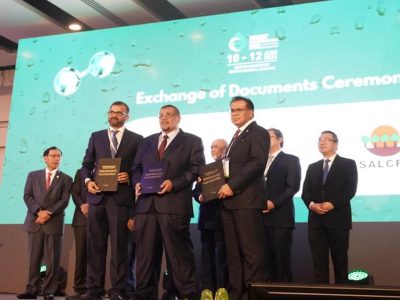
Planet QEOS, KIS BlOCNG San Bhd, and the Sarawak Land Consolidation and Rehabilitation Authority (SALCRA) have officially signed a tripartite memorandum of understanding (MoU) to establish a collaborative framework aimed at producing bio-hydrogen via the Steam Biomethane Reforming (SBMR) Process. The MoU was signed by Planet QEOS executive chairman Dino […]
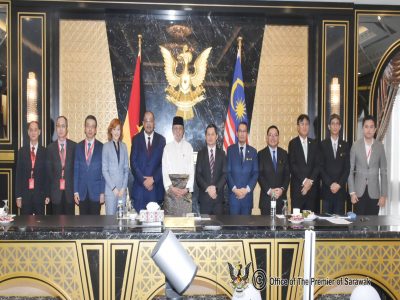
Planet QEOS and China Machinery Engineering Corporation (CMEC) are interested in investing RM10 billion to co-develop advanced Megawatt peak (MWp) agrovoltaic in Baram, to further boost Sarawak’s green energy initiative and food security. Sarawak Premier Datuk Patinggi Tan Sri Abang Johari Tun Openg was briefed on Friday by both the […]

Last week SPM results came out, 373,974 aspirants who have been waiting patiently over the last few months would now know their fate. Some 10,109 have received all A’s, the golden standard of academic success and the ticket to those looking to study the “more advanced” subjects in university. Proudly, […]

The classic knee-jerk reaction is to say, fire the coach, change the leadership of associations, and reduce the funding till they start performing better. This kind of negative reinforcement may work for kindergarten children, but we are dealing with high-performance adults – individuals much further along in their psychological and […]

Since its earliest tea plantations in 1929, Cameron Highlands has grown to become a key player in the agricultural landscape of Malaysia, producing 40 per cent of all vegetables grown. Despite Malaysia shifting its economic focus away from agriculture, the industry remains imperative for food security and the livelihoods of […]

Although at first glance the travel industry and the agricultural sector appear to have nothing in common, they actually share more than meets the eye. The economic benefits of tourism to the agricultural sector can be multiplied several times over. “Tourism brings the end consumers closer to the source, which […]
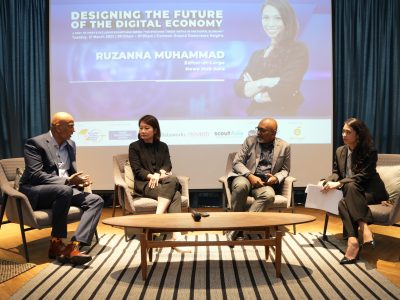
The Malaysia Global Business Forum (MGBF) recently held a high-level roundtable themed ‘Designing the Future of the Digital Economy’, attended by industry leaders and business associations. The guest of honour was Yang Berhormat Syerleena Abdul Rashid, the Member of Parliament (MP) for Bukit Bendera in Penang. The MP’s Special Session […]

The Malaysia Global Business Forum (MGBF) will be hosting a roundtable on ‘Designing the Future of the Digital Economy’ on 23 February 2023. It is the culmination of the first three MGBF Exclusive Roundtable Series titled ‘The Evolving Threat Matrix in the Digital Economy’ held throughout 2022. According to the […]

The Founding Chairman of the Malaysia Global Business Forum (MGBF), Nordin Abdullah, today spoke on Bernama TV’s leading English talk show, The Brief, hosted by Jessy Chahal, on the topic of a stable political reality and what that means for the Malaysian economy. Nordin said, “The first thing that it […]

More than 1,100 years ago, Muhammad ibn Musa al-Khwarizmi was developing the mathematical formulas that we know today as algorithms which now have become so intertwined with the business fortunes of global media giants and the very fabric of geopolitics. A series of recent high level international reports have revealed […]

KSK Land has been recognised by the Malaysia Global Business Forum (MGBF) for its role in attracting high net-worth individuals to Malaysia post-pandemic. The first challenge in investor attraction is “selling” the country. In the context of Asia, Malaysia is competing with some very established investment destinations. The second […]

Malaysia, in particular Kuala Lumpur, continues to position itself as a regional centre to do business, educate a family and enjoy a global lifestyle. One company, KSK Land, has taken the lead in positioning itself and the city of Kuala Lumpur as a property investment destination for the global citizen […]
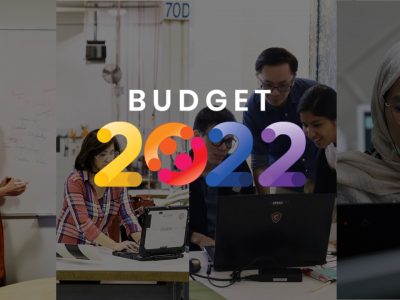
The upcoming budget represents an opportunity to build resilience in the critical sectors that will form the backbone of the country’s future-facing economic ambitions. This however needs to be achieved in the context of managing the community sectors most impacted by COVID-19 over the past two years. The Keluarga Malaysia (Malaysian Family) […]

Malaysia Global Business Forum (MGBF) has moved to support the creative economy as the overall economy moves into a recovery phase following the COVID19 pandemic. As a step in the direction of normalcy, the MGBF has agreed to host the art exhibition “I Know You’re Somewhere So Far” by one […]
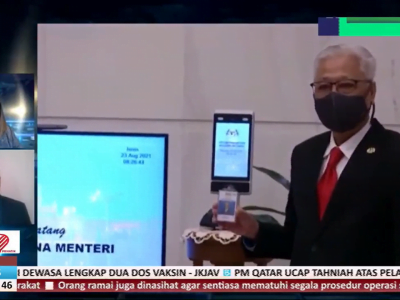
Congratulations to Datuk Seri Ismail Sabri Yaakob for taking up the mantle of the ninth prime minister of Malaysia. There is nothing normal about the situation; it could not have been scripted but it has kept the spectrum of media, mainstream and social, gripped. The first order of business for […]

In a stirring speech to the nation, President Joseph R. Biden, Jr. stamped his brand of leadership on the presidency, in his first act as the 46th president of the United State of America, it signaled several shifts. Perhaps the weather was foreboding with snow falling before the ceremony that […]

KUALA LUMPUR, 6 July 2022 – As the global economy continues to deal with unprecedented levels of disruption caused by the pandemic and the conflict between Russia and Ukraine, the convergence of energy security and food security issues has become a front-of-mind issue faced by policy makers and consumers alike. […]

KUALA LUMPUR, 23 June 2022 — Malaysia Global Business Forum (MGBF) ties up with scoutAsia to ensure that businesses are equipped with deeper regional insights. The past two years has seen a massive shift in the way businesses are conducted with digitisation, digitalisation and automation continuously being adopted to improve […]
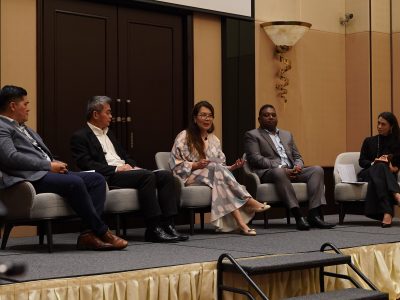
KUALA LUMPUR, 25 May 2022 – The Malaysia Global Business Forum (MGBF)’s exclusive roundtable on ‘Security Concerns in Critical Value Chains’ was held in a hybrid setting yesterday at the Eastin Hotel Kuala Lumpur. The guest of honour was Yang Berbahagia Tan Sri Dato’ Seri Rafidah Aziz, former minister of […]
![]() www.gbgplc.com/apac, follow us on Twitter @gbgplc or
www.gbgplc.com/apac, follow us on Twitter @gbgplc or ![]() LinkedIn.
LinkedIn. 



